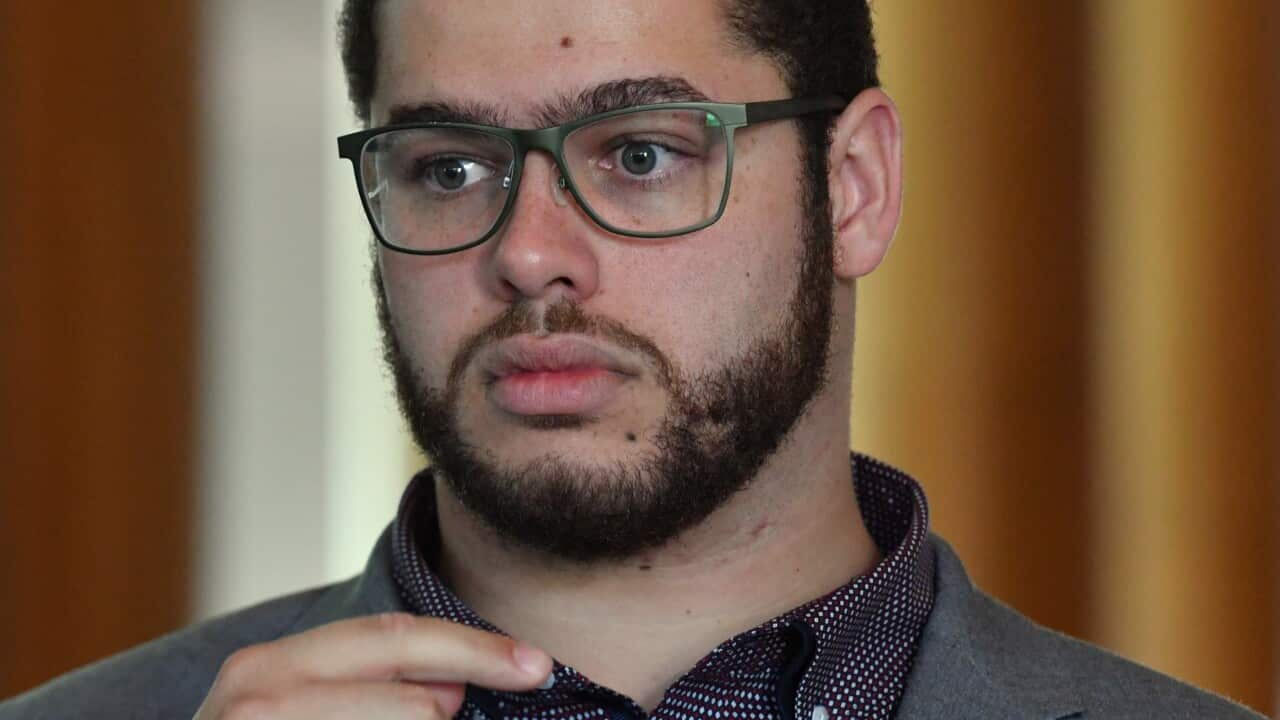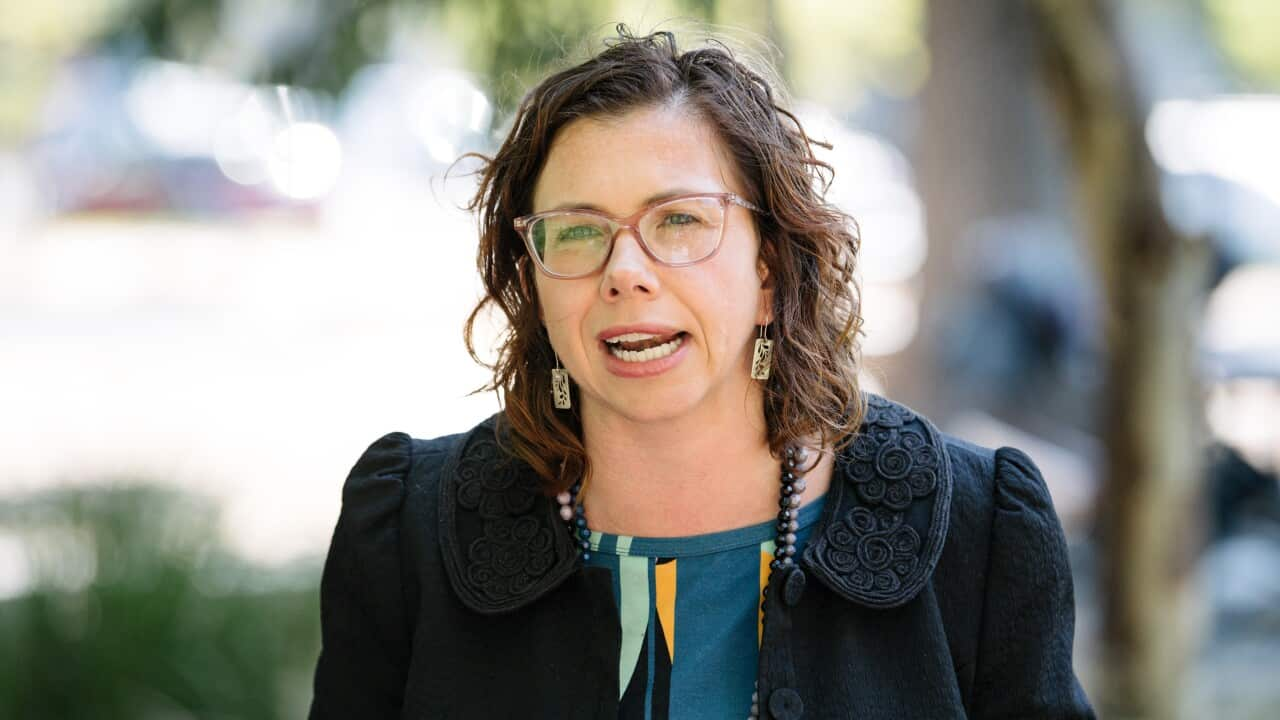Key Points
- The Social Services Minister has hosted a roundtable on lifting employment outcomes for people with disability.
- The guest list of 100 attendees from across business, industry and community groups is yet to be made public.
Greens Senator Jordon Steele-John is calling for employment outcomes for people with disability to be a clear priority at the Albanese government's upcoming jobs and skills summit.
The guest list of 100 attendees from across business, industry and community groups is yet to be made public.
But a spokesperson for Treasurer Jim Chalmers confirmed to SBS News there would be attendees at the summit with either lived experience of disability or experience in the sector.
Senator Steele-John told SBS News "a seat at the table is not enough."
"I'm disappointed but unsurprised to see that addressing employment barriers for disabled people is not explicitly on the summit's list of priorities," he said.
"Political leaders have failed to take sufficient action towards equity of employment for disabled people for decades.
"There is no clear indication that disability rights are a priority issue at the Summit, and I'd like to see that addressed immediately."
Among the stated list of issues to be discussed at the job summit is reducing barriers to employment, including for people with disability.
On Monday, Social Services Minister Amanda Rishworth held a roundtable with leaders from across the disability sector and wider industry ahead of the summit.
Ms Rishworth told Sky News the roundtable would "discuss what are these barriers and how do we break these barriers down."
Australian of the Year Dylan Alcott, as well as representatives from Australia Post, the Tech Council of Australia and the Council of Small Businesss Organisations Australia were among those who attended in person or virtually.
“There are a lot of people living with a disability that want to work, but have these barriers in front of them," Ms Rishworth said.
“Businesses changing their mindset, changing some of their HR processes are really critical, and of course, community changing their attitudes in how we support people living with a disability get into a job,”

Social Services Minister Amanda Rishworth said barriers are preventing lots of people with disability from getting work. Source: AAP / DEAN MARTIN/AAPIMAGE
On Sunday, the minister announced eight providers would be scrapped for poor performance, with 15,500 participants impacted.
"I'm not going to make any apologies for standing by and watching what have been very poor performance over a long period of time, continue to provide bad service for people living with a disability," Ms Rishworth said.
"It was absolutely time to take action on this."
The scheme is due to end next year when it will be replaced by a new program.
The summit in Canberra fulfils a key election promise for Prime Minister Anthony Albanese.
“I want employers, unions and the non-government sector to get together over two days next week, and produce practical outcomes,” Mr Albanese told reporters in Sydney on Monday.
Gaps in participation
Workforce participation rates for people living with disability have lagged behind those without for decades.
About 53 per cent of working-age people with disability are in the labour force, compared to 84 per cent of those without.
Just 27 per cent of people with severe or profound disability are in the labour force.
Rick Kane, CEO of Disability Employment Services Australia, who attended the roundtable, described the timing of the summit as “perfect.”
“There's a lot of things going on with the labour market, with the employment and unemployment rate, and particularly with the unemployment rate for people with disability,” he told SBS News.
According to the Australian Institute of Health and Welfare, working-age people with disability are twice as likely to be unemployed compared to other Australians.
That rate is heightened for those with severe or profound disabilities and those with intellectual disabilities.
“I really do want to emphasise that there are cohorts of people with disability, who lag even further behind,” Mr Kane said.
“We all have a responsibility, and I don't exclude these providers out of that. We have to do better in working with and assisting people with intellectual disability and autism into employment.”
The disability royal commission heard several testimonies from witnesses who had been failed by the programs to help them enter and stay in the workforce.
Some said program providers failed to place them in jobs adequate for their skills and abilities, while others were kept in placements until government grant funding ceased.
UTS Professor Simon Darcy, a leading advocate for several decades said it was incredibly important for people with disability to have a seat at the summit table.
“If we can't get people employed at the moment, with incredibly low unemployment rates, when are we going to get people with disability employed?” Professor Darcy told SBS news.
“I think there needs to be also greater consideration around understanding that there is complexity in this space.”
He highlighted making progress on accommodating people with intellectual disabilities as a priority.











